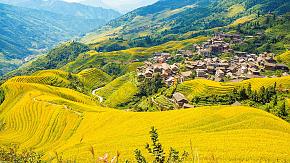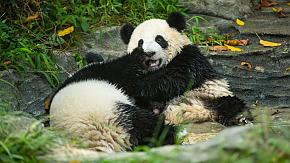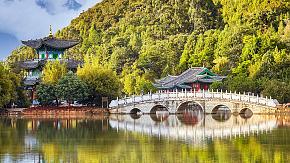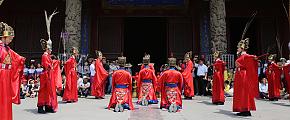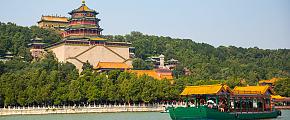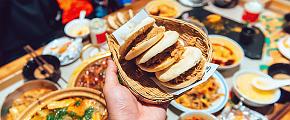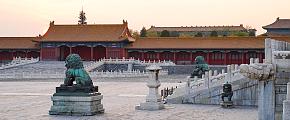Guide for Celebrating Chinese Dragon Boat Festival 2026
The Dragon Boat Festival is one of most vibrant and famous China's traditional festivals. Marked by boat races, sticky rice dumplings, and lively traditions, it offers travelers a vivid glimpse into Chinese culture. Here's what to know if you plan to experience it during your China tour.
When is the Dragon Boat Festival
The dates of traditional Chinese festivals are based on the lunar calendar. The Dragon Boat Festival falls fixedly on the fifth day of the fifth lunar month, while in the international (Gregorian) calendar, it takes place differently every year. The Chinese Festival of the Dragon regularly falls in June. It is celebrated on June 19, 2026.
Origins and Significance of the Dragon Boat Festival
There are many household legends behind the festival in history. The most popular version is about Qu Yuan, a Chu patriotic poet and minister of the Warring States Period. The poet felt so passionately about his state and people that he committed suicide by throwing himself into the Miluo River on the fifth day of the fifth lunar month after Chu's capital was conquered. It is widely believed that the festival originated from the rescue attempt of the Chu people for Qu Yuan and their sadness for Qu Yuan's death.
Chinese calendar tradition is another way to explain the origin of the Dragon Boat Festival. The ancient Chinese beliefs consider the fifth lunar month an ominous month and the fifth day of lunar May the most ominous day throughout the year. Known as the "month of poison", its warming weather creates a breeding ground for the fatal "five poisonous creatures" that traditionally include centipedes, scorpions, snakes, toads, and spiders. As a result, ancient Chinese people put wormwood and calamus on the door and wore perfume pouches on this day to ward off evil spirits.
Traditions and Customs at the Dragon Boat Festival
The Dragon Boat Festival is celebrated in many ways, depending on the region and the community. But some traditional customs are indispensable for celebrating the festival virtually throughout China and even overseas areas. These customs mainly include dragon boat racing, eating zongzi, and hanging calamus and wormwood leaves.
Dragon Boat Racing
Dragon boat racing is the most popular activity during the Dragon Boat Festival. It is a traditional sport that is believed to honor Qu Yuan. It is said that the people of Chu tried to row to rescue Qu Yuan's remains while scaring the fish in the river before the fish ate his body. The traditional activity involves teams of rowers racing in long, narrow boats decorated with gorgeous dragon heads and tails. Each boat is manned by a team of 20 paddlers, a drummer, and a helmsman. The drummer inspires the team members by shouting and banging the drums while the helmsman steers the boat. The racing distance is usually 200 - 500 meters, and the boats can reach speeds of up to 20 kilometers per hour. The races are held on lakes or rivers and are accompanied by cheers and the sound of drums. On the festival day, people will flock to the riverbank to watch dragon boat races. It's a wonderful thing to watch the thrilling competition with locals.
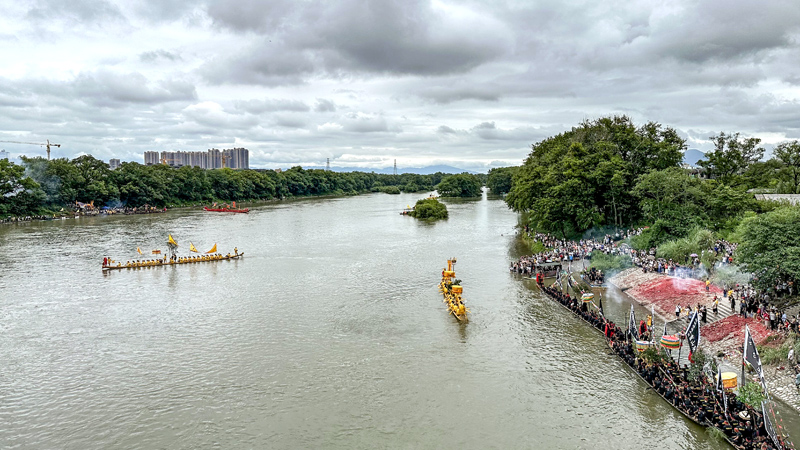 Dragon Boat Racing
Dragon Boat Racing
Taboos During the Dragon Boat Festival
As a traditional festival, there are a set of taboos to avoid during the Dragon Boat Festival to make sure those who follow all of the rules will enjoy good health, wealth, and luck for the rest of the year. If you take part in the festival inside China, remember not to do the following things:
1. Don't Say "Happy Dragon Boat Festival" as Greeting
The Dragon Boat Festival is celebrated in memory of ancestors in a gloomy mood, so sending greetings like "Happy Dragon Boat Festival" to others is inappropriate. You can say "Wishing you peace and health on the Dragon Boat Festival" if necessary.
2. Don't Go to Places with Heavy Yin Energy.
Yin energy means evil spirits. In Chinese traditions, places with heavy yin energy include hospitals and crematoriums. Such visits could bring back bad luck, so it's not advisable to see a doctor during the Dragon Boat Festival. If you must do that, it is a good idea to carry a perfume pouch to ward off evil.
3. Don't Go to Forests and Mountains.
According to Chinese culture, five poisons will haunt the earth due to the changing weather in lunar May. The rainfall will increase with higher temperatures. Thus, many poisonous animals, like insects, snakes, ants, and rats, will largely appear in the forests and mountains. So don't go to forests and mountains to avoid being bitten by poisonous animals.
Where to Celebrate Dragon Boat Festival
Here are some popular places to celebrate the Dragon Boat Festival in China:
Hangzhou: Hangzhou, located in eastern China, is home to the famous West Lake, which is a popular destination for visitors during the Dragon Boat Festival. In June 2026, the Hangzhou Xixi International Dragon Boat Race will be held at West Lake. The event has a long tradition and is distinctive in Hangzhou. Tourists can flock to Xixi National Wetland Park to catch a wonderful view of the dragon boat race. After the dragon boat games, you can watch a competition for making zongzi and scent bags.
Beijing: Beijing, the capital of China, also celebrates the Dragon Boat Festival with boat races, dragon dances, and other festivities. There are many popular locations for boat races in Beijing. They are the Golden Sail Water Sports Club in Houhai (Beijing International Dragon Boat Racing Team's home base), the Shunyi Olympic Rowing-Canoeing Park, and the Summer Palace. In Summer Palace, you can watch the race from the lakeside pavilions. Besides, many musical entertainments and traditional dance and artistic performances are held during the festival.
Hong Kong: Hong Kong is famous for its vibrant and exciting dragon boat races, which take place in Victoria Harbour, Tai O, and other locations around the city. Traditional festivities include a dragon parade with four god statues, a three-dragon boat race, and food fairs.
Guangzhou: Guangzhou, a city in southern China, is famed for its Cantonese cuisine and vibrant culture. During the Dragon Boat Festival, there are boat races on the Pearl River, as well as dragon dances, lion dances, and other cultural activities.
Eating Zongzi
In addition to dragon boat racing, the festival has been marked by another outstanding custom: eating Zongzi. Zongzi is an essentially traditional food for the Dragon Boat Festival. Zongzi are a kind of rice dumpling in a pyramid shape. They are made of glutinous rice with a filling, such as meat, peanuts, or red bean paste, and then wrapped in bamboo leaves. The bamboo leaves are then tied with string to form a pyramid shape. This kind of traditional food also has something to do with Qu Yuan. It is thought to have evolved from rice-filled bamboo made by the people of Chu to keep underwater life from eating Qu Yuan. Actually, zongzi were made long before Qu Yuan was born as offerings to worship Chinese ancestors and gods. People worship Qu Yuan with zongzi as a way to show their great affection and respect for the great poet.
The zongzi can be boiled or steamed. The ingredients of the filling can be different according to family preference. The zongzi can be sweet or savory, and the taste of the zongzi varies depending on the region. You can try zongzi in most dim sum restaurants.
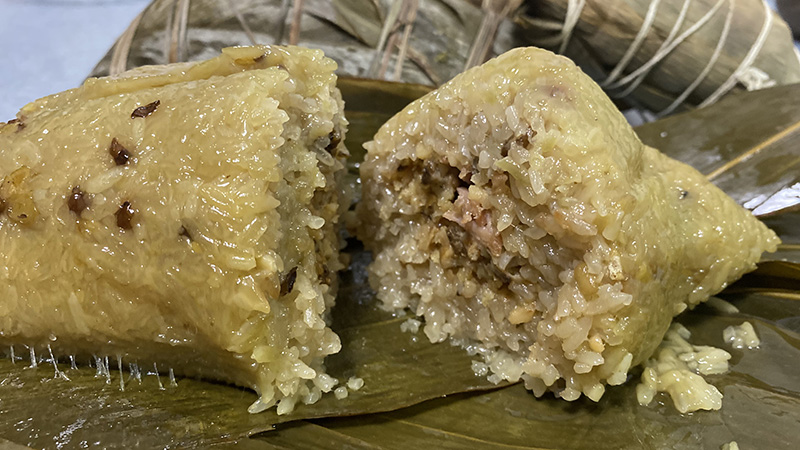 Zongzi
Zongzi
Hanging Calamus and Wormwood Leaves
Calamus and wormwood leaves are two traditional herbs that are hung during the Dragon Boat Festival. On this day, people will hang these two herbs on doors and windows. Calamus has a sweet fragrance and is used to treat stomach problems, while wormwood has a bitter taste and is used to repel insects. They are believed to have medicinal properties and to ward off evil spirits. Besides, calamus and wormwood leaves are used to decorate the dragon boats.
Wearing Perfume Pouches
Fragrant pouches are small bags filled with herbs, such as cinnabar, rosemary, lavender, mint, and rose, and tied with five-colored thread. They are worn around the neck or carried in a pocket. They are believed to have a calming effect, repel insects, and protect against diseases. Wearing perfume pouches is one of the important customs to exorcise evil and bad luck. Many colors or types of fragrant pouches are available at market stalls and shopping malls in China. They are suitable as a souvenir or gifts.
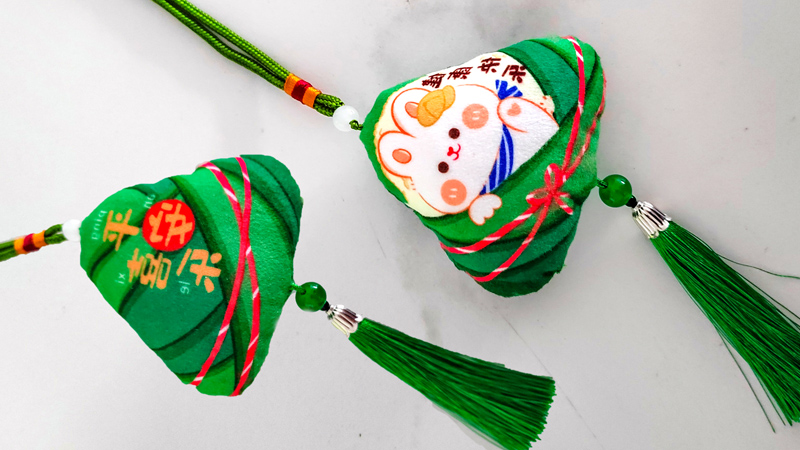 Perfume Pouches
Perfume Pouches
Tying Five-Color Silk Threads
Five colors is considered auspicious in Chinese culture, so the five-colored silk thread is an important mascot at the Dragon Boat Festival. According to Chinese old tradition, the earth is fraught with "yin" (devil spirits) on this festival day, so people make five-colored silk thread to ward off the devil spirits. The small item is made of silk threads in five colors, including red, green, yellow, white, and black. Parents prepare to knit such a silk thread for their children, who will try it during the festival. Today, five-colored silk threads are more and more beautifully made, and they have become an exquisite adornment. You can get one at local markets if you want.
In addition to the traditions and customs mentioned above, the Dragon Boat Festival is celebrated in other ways, such as by drinking red wine, painting children's foreheads with red wine, and flying kites.
Related Posts You May Like
What Our Clients Say
Explore the latest verified reviews of Odynovo's travel services on Tripadvisor, Google, Trustpilot, Product Review and more trusted platforms.

